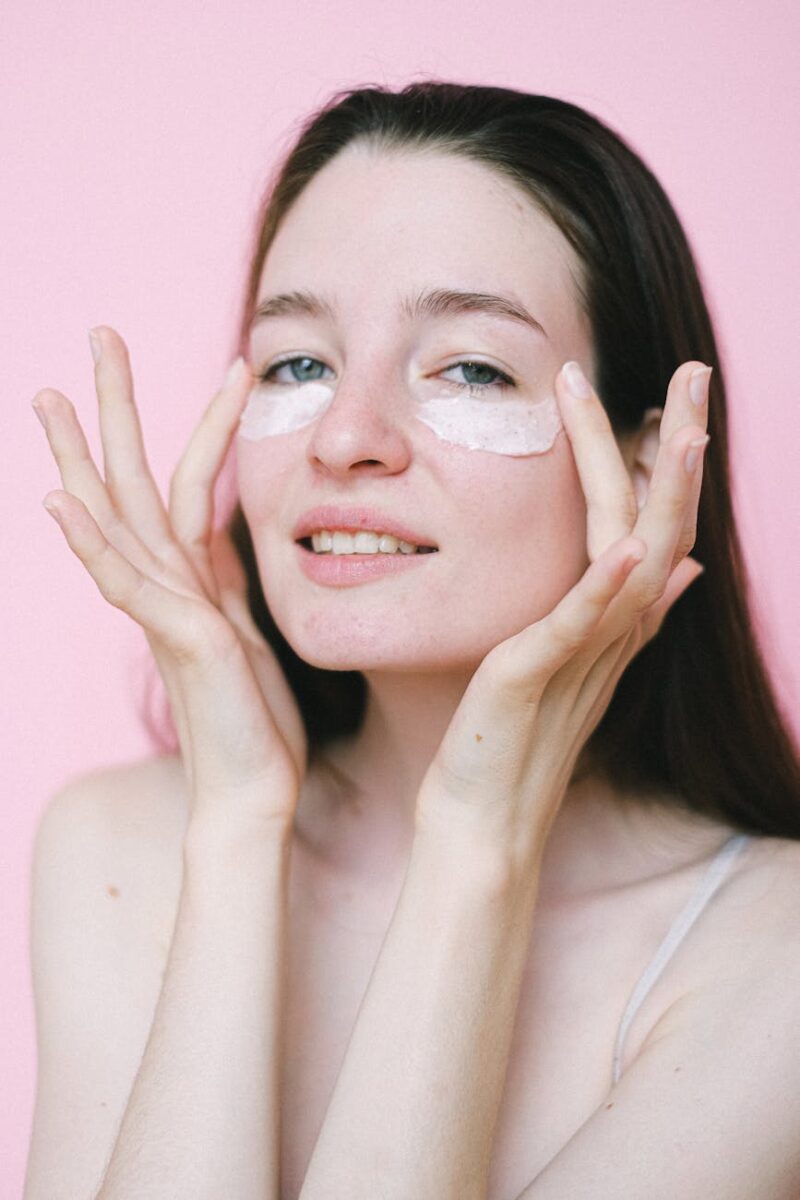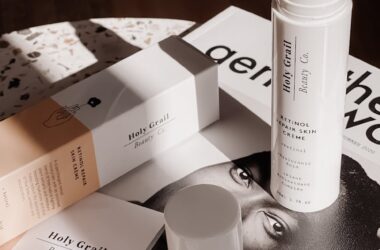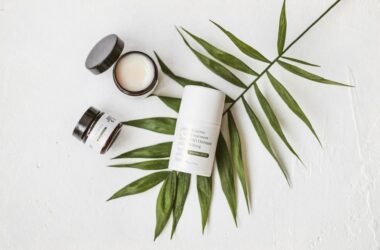There are many people who have made the switch from using a typical skin product to using a retinol cream.
If you’re considering doing so, you may be wondering about the many benefits of retinol eye creams and their safety.
I’m going to help clear up any confusion that you might have about retinol eye creams and exactly why they can benefit your skin.
Are Retinol Eye Creams Safe?
Retinol skin creams and eye creams are generally safe and worth trying if you’re looking for wrinkle fighting power with no side effects.
Always follow the directions on your bottle and don’t use more than directed.
Theoretically, most products that contain retinol should be safe for use by anyone.
However, this isn’t always the case. There are some important steps you should take to ensure that you’re using a product that’s safe for your skin.
The first thing you should do before considering any topical product containing retinol is to research it on the Internet.
You can do this by searching for “retinoids,” “retinol,” or “tretinoin” to see if it’s already been reported safe or unsafe.
You don’t want to choose a product based on what someone else says about it, but rather on your own research.
When researching products containing retinoids, look for reviews from people who have actually used them and read the ingredients listed on the label.
Do Retinol Eye Creams Work?
Retinol has been shown to have anti-inflammatory properties that reduce the appearance of fine lines and wrinkles. It can stimulate collagen production in skin cells, helping them grow thicker and firmer.
A study published in the International Journal of Cosmetic Science found that women who used a retinol product over three months had significant improvement in all types of wrinkles, including crow’s feet and the look of bags under the eyes.
Are Retinol Eye Creams Safe for Pregnant Women?
Retinol is classified by the FDA as a Category 1 drug and has been approved for use by pregnant women since 1991.
This means that it’s considered safe to use during pregnancy, but as with all medication, there are certain risks involved.
For example, larger amounts of retinol may cause birth defects or reduced breastfeeding ability in newborns.
The FDA also states that there are “no adequate and well-controlled studies in pregnant women.
Are Retinol Eye Creams Safe for Children?
Although it’s true that retinol isn’t approved by the FDA for use on children, many companies make and sell products that contain retinol because it works.
The bottom line is that you should always follow the instructions on your product packaging (and consult your doctor or dermatologist before using a product if you have questions about its safety).
How Much Retinol Should You Use in an Eye Cream?
As it turns out, there is not a one-size-fits-all answer for retinol. It can be a powerful ingredient, but it can also cause irritation if used incorrectly.
Here’s how much of the ingredient you should use:
10% — Use this level if you have normal skin or are in your 30s or 40s and have used retinol before without problems. If you’re using a product that contains 6 percent retinol or less, you don’t need to go any higher than this.
20% — If you have sensitive skin or your first experience with retinol was bad, use this dosage if you want to be extra cautious.
30% — If your skin is already dry, use this level if retinol is new to you or you are over the age of 40 and have never used it before.
40% — If you are new to retinol and want to be extra cautious, start at this level and build up from there.
How Often Do I Need to Apply a Retinol Eye Cream?
The number of times you need to apply it depends on the brand and how you are using it. In general, though, most experts suggest applying it once a day for at least six weeks to start feeling the effects.
The first step in determining how often to apply your eye cream is determining which kind of product you are using.
There are many different types of retinol products on the market, including creams, gels, liquids, and serums.
You will have to experiment with which product works best for you and your skin type.
If you’re unsure about which type of product is right for you, ask your dermatologist or plastic surgeon what brand of the product he or she recommends.
He or she will be able to tell you the specific ingredients that work the best for his or her patients.
Can You Use Retinol Eye Creams With Makeup on?
If you’re using retinol eye creams in conjunction with cosmetic or skincare products that contain other active ingredients (like vitamin C), there’s no problem.
You’ll be able to wear makeup over top without fear of irritation. If you’re using a product with retinol alone — whether it’s an eye cream or a facial moisturizer — you’re going to experience an irritation that’s akin to the redness caused by over-the-counter anti-itch ingredients like hydrocortisone.
You can play around with the amount of retinol in your product to find what works for you without irritating your skin.
Try starting at 1% and work your way up from there, until your skin begins to feel uncomfortable.
When that happens, cut back again. Your goal is to find the right balance between irritation and results.
Can I Put a Moisturizer on Over My Retinol Eye Cream?
If you use a retinol eye cream, you probably want to use a moisturizer or night cream with hyaluronic acid in it.
Retinol can be a little harsh on the skin, and it can cause dryness. Serum-type moisturizers are more gentle, but they tend to be more expensive than lotions and creams.
Some people also feel that serums don’t have enough staying power for their skin.
If your skin is very dry, you might consider using a combination of both types of moisturizers.
There’s a lot of overlap between retinol and vitamin C products.
Vitamin C is found in serums and can be used as an anti-aging ingredient, but vitamin C can also help to boost collagen production and improve the look of your skin by evening out discolorations or dark marks.
If you want to use retinol eye cream while you’re using vitamin C products, it’s important to keep your products separate.
This won’t help if you use an antioxidant serum under your retinol eye cream, but if you apply your retinol eye cream first without any other products underneath it, there’s no problem.
Are Retinol Eye Creams Good for the Lips?
The short answer is no. When it comes to the lips, retinol has the same potential as any other retinoid to cause irritation and dryness.
Some people aren’t bothered by that — they use retinol on their eyes or face and don’t experience any problems there.
But others do, and when they try a lip product that contains it, they end up with dry flaky skin around their mouths or red inflamed lips.
Are There Any Side Effects to Using a Retinol Eye Cream?
The FDA says there is no evidence that these products are harmful if used as directed. The effects may take longer to show up in people who have sensitive skin.
Retinol is a form of vitamin A that’s used to treat acne and other skin conditions.
The active ingredient in retinol eye creams is retinaldehyde, which has been found to be useful in treating signs of aging in the face as well.
But it’s also one of the many ingredients in Retin-A and Renova, which are prescription-strength peels that are available over the counter.
There isn’t enough scientific research to indicate whether using retinaldehyde can cause any long-term side effects, such as liver damage or birth defects.
How Do I Choose the Right Retinol Eye Cream?
Here are some things to keep in mind when choosing a retinol eye cream;
1. Do your research.
2. Read the ingredients list.
3. Look for a product that has multiple forms of retinol in it, including retinyl palmitate and retinyl acetate, as well as vitamin C, which is also important for cell turnover (which can cause acne).
4. Avoid products with parabens in them or fragrances added in order to make them smell good.
5. Avoid those small tubes that contain only a few milliliters, as these are not going to do much for you anyway so it’s best to use big bottles instead.
6. Try different products before investing in pricey brands.
7. Avoid over-the-counter retinol products that contain unnecessary ingredients like alcohol or fragrance.
8. Try a brand that has been actively studied by an independent research group or a third-party organization.
9. Think about your skin type and make sure you select a product that will work for you.
How Should I Store My Retinol Eye Cream?
The great thing about retinol eye cream is that it’s easy to use, but there are certain things you should remember when storing it.
Here are some tips on how you should store your retinol eye cream:
1. Store your retinol eye cream in a cool place. Storing it in a refrigerator or freezer can affect the quality of the product and its functionality.
2. Don’t store your retinol eye cream in direct sunlight or near a radiator.3. It’s best to keep it in its original packaging until you’re ready to use it.
4. Don’t place your retinol eye cream near other medicines or cosmetics because they may react with each other and cause damage to your skin.
5. Use an airtight container if you’re going to keep it at room temperature because air can make the product lose its effectiveness over time.
6. Don’t store your retinol eye cream in a bathroom because humidity makes it lose its efficiency over time and also causes problems with bacterial growth.
What Are the Benefits of Using Retinol Eye Creams?
We can all take steps toward keeping our eyes healthy, but one of the best things we can do is use a retinol eye cream.
Retinol is a powerful natural ingredient that helps improve wrinkles, fine lines and dark circles.
It’s especially helpful if you’re someone whose skin turns red when it comes to any sun exposure.
The key benefits of using retinol eye creams include:
1. Reducing fine lines and wrinkles
A retinol eye cream can help soften and smooth the tiny lines and wrinkles beneath your eyes, reducing their appearance.
They also help prevent crow’s feet from developing around your eyes by smoothing out the skin underneath.
2. Reducing bags under the eyes
The skin under your eyes is very thin, so any inflammation or swelling can cause bags under your eyes.
A retinol eye cream can stabilize blood flow to this area and reduce puffiness.
3. Prevents acne
In addition to treating fine lines and wrinkles, retinol eye creams can help prevent the appearance of acne.
If you’re using a retinol cream with an anti-inflammatory ingredient, such as glycolic acid, it can also reduce redness, swelling, and soreness that come with acne.
4. Improves skin tone and texture
In addition to reducing fine lines and wrinkles, retinol also improves skin tone and texture.
It’s also particularly beneficial for people with sensitive skin because it doesn’t contain any potentially irritating ingredients such as fragrance or parabens.
5. Improves skin firmness
Retinol has been found to improve skin firmness by reducing elastin content in the dermis, as well as increasing collagen production under the skin.
6. Protects against UV rays
The skin under the eyes is thin and delicate, which makes it particularly susceptible to sun damage and premature aging.
Retinol eye creams are formulated with a potent blend of retinol and antioxidants to help protect against the damaging effects of free radicals and UV rays.
The highly concentrated formula penetrates deeply where it is needed most to restore the skin’s natural balance, leaving it wrinkle-free and glowing from within.
Final Thoughts
Of course, any pharmaceutical should be utilized wisely, and retinoids are no different.
If you are thinking about using a retinoid eye product, be sure to consult your doctor first to find out if they will fight the fine lines and dark circles you want to get rid of.
There is much research still to be completed on the proven benefits of retinol eye products, but millions of satisfied consumers can’t be wrong.
If you use retinol products consistently, it can change your life.







